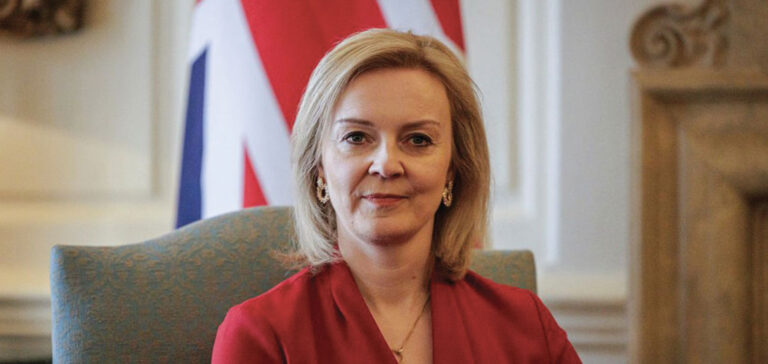After the freeze on energy bills already promised to households, the British government will also pay half of the energy costs of businesses this winter in the face of soaring prices, despite the high impact on public finances.
“The British government has set a subsidized wholesale price” for six months, which
is expected to be “less than half of the expected wholesale prices this winter” for the companies, NGOs and public institutions covered by the measure, according to a statement from the Ministry of Energy and Enterprise. The support “will be equivalent” to that already announced for individuals, which caps energy prices for an average household at £2,500 a year for two years, a rebate of some £1,000 – and includes the removal of some environmental levies, the executive said.
While the amount that will be covered depends on the situation and contracts of each institution, it could mean a reduction of more than 40% of the bill for a pub or a school, according to examples provided by the government.
The mechanism could be extended and made more targeted, or replaced by support focused on the most vulnerable companies or institutions.
Soaring energy prices are one of the main factors driving inflation to its highest level in 40 years in the UK, at 9.9% year-on-year in August, and the executive intends to put a stop to these price increases that are hitting households and businesses. The companies were applauding. “This will allow many businesses that were in danger of closing, laying off staff or reducing production to get through the winter,” said Shevaun Haviland, director general of the British Chambers of Commerce. But some “will still have trouble paying their bills,” she warns.
“Panic reaction” –
“We intervened to prevent businesses from collapsing, to protect jobs and to limit inflation,” said the new finance minister, Kwasi Kwarteng.
Faced with fears of recession, the government also intends to boost growth by cutting taxes across the board. The Times reports that the real estate transaction tax will be cut, in addition to the already announced cuts in social security contributions and corporate income tax.
The government is due to present a “mini-budget” on Friday to detail, among other things, the financing of these measures, which should exceed 100 billion pounds.
Between tax cuts and energy subsidies, economists at Barclays put the figure at over 200 billion pounds on Tuesday. They must be financed by borrowing, raising fears of a slippage
of public finance. The scale of support looks “almost like a panic reaction”, commented Paul Johnson, director of the Institute for Fiscal Studies (IFS) think tank, on the BBC on Wednesday. But such measures “were inevitable” in the face of soaring prices, he said.
While government borrowing fell year-on-year in August, after peaking with pandemic-related aid, it remains very high at 11.8 billion pounds, according to data released Wednesday. The public debt amounts to 96.6%.
of GDP. Barclays predicts that public debt could exceed 105% of GDP by 2024-2025.
However, according to Martin Beck, an economist at EY Item Club, “the significant drop in wholesale energy prices recently indicates that the bill freeze could prove less costly than initial estimates suggested.





















